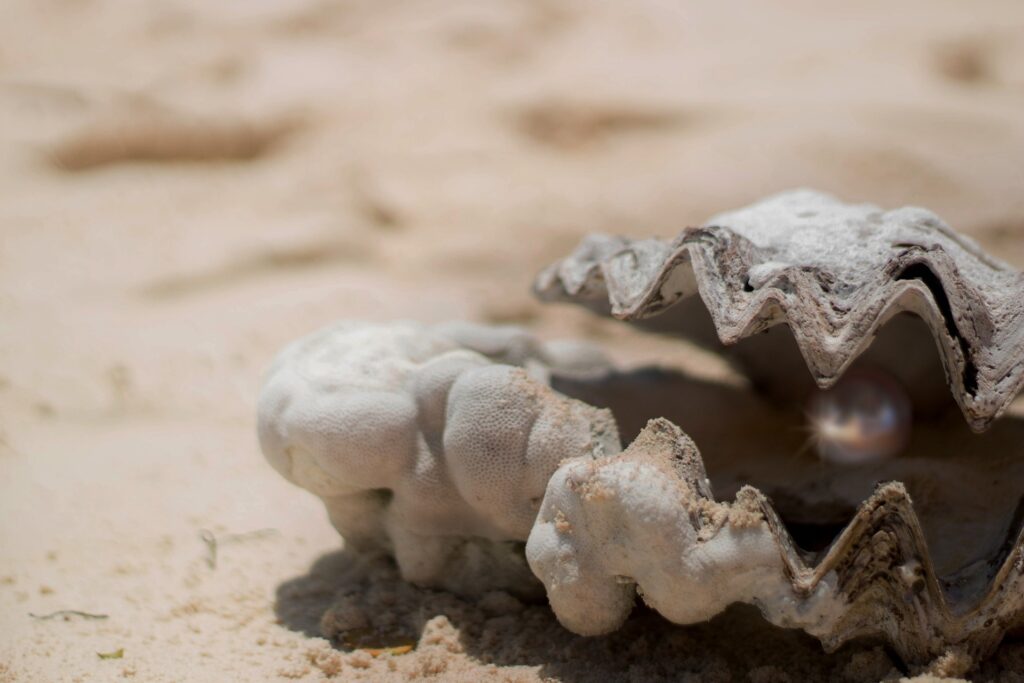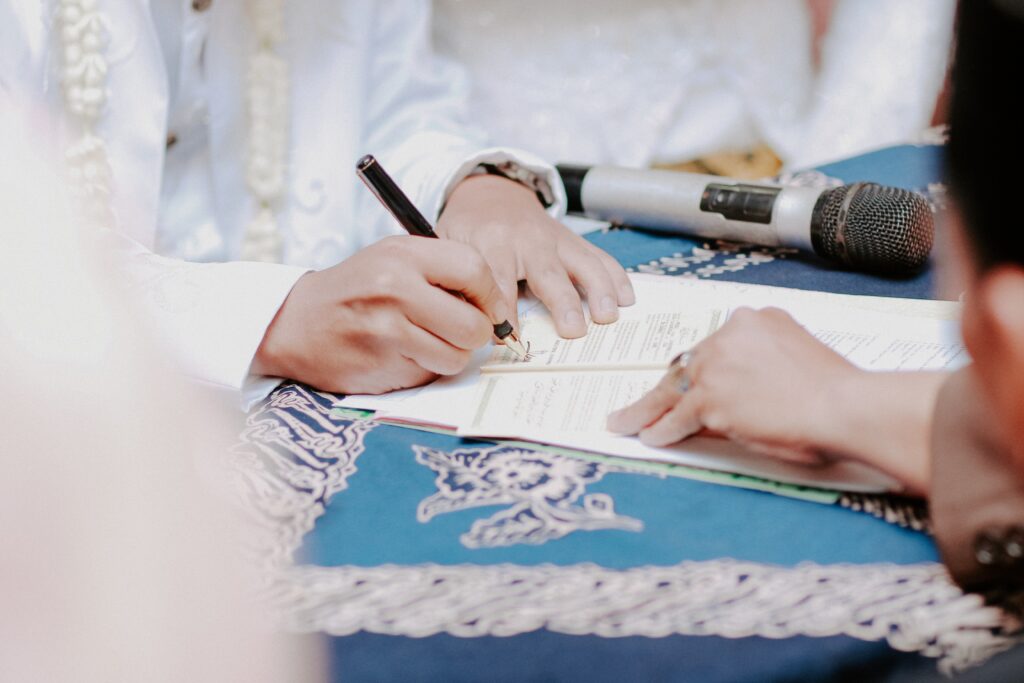Guidance regarding basic Islamic issues – which Hazrat Amirul Momineen, Khalifatul Masih Vaa has given on various occasions in his written correspondence and during MTA programmes – is being officially published below for everyone’s benefit.
Five terrible catastrophes and World War III

A lady from London wrote to Hazrat Amirul Momineen, Khalifatul Masih Vaa asking about Hazrat Khalifatul Masih III’srh warning about the potential outbreak of World War III in one of his Friday sermons in light of the Promised Messiah’sas prophecies. She requested more evidence regarding this.
She also said non-Ahmadi Muslims believe in the existence of ghosts and spirits and asked how the reality of these entities should be explained to them.
Huzoor-e-Anwaraa, in his letter dated 17 December 2021, provided the following answer to her questions:
“Allah the Exalted informed the Promised Messiahas through various dreams, visions and revelations about the major calamities and earthquakes that were to occur in the world. Five terrifying catastrophes have been especially mentioned among them. Hence, the Promised Messiahas stated:
“‘The prophecy of the Almighty God regarding the coming of five earthquakes, the words of which are, ‘Five times shall I show you the dazzling manifestation of this Sign.’ The meaning of this Divine revelation is that God Almighty says that, in order to bear witness to the truth of my claim, and so that people may realise that I am from Him, God Almighty will cause five terrifying earthquakes to appear, one following the other, at short intervals. They will bear witness to the truth of my claim, and each of them will display such radiance that the beholder will at once be reminded of God. Such a terrifying effect will they have on people’s hearts, and so extraordinary will be their power, intensity and devastation, that people beholding them will lose their very senses.’ (Tajalliyat-e-Ilahiyyah, Ruhani Khazain, Vol. 20, p. 395)
“Describing the horror and intensity of these calamities, the Promised Messiahas stated:
“‘So know it with certainty that just as, in keeping with the prophecy, there have been earthquakes in America and also in Europe, so will they occur in different parts of Asia, and some of them will be like the Doomsday. There will be death on such a large scale that streams of blood will flow. Even birds and grazing animals will not escape this death. Such destruction will overtake the earth as has not happened since man was created. Most places will be turned upside down as if they had never been inhabited. There will also be other terrible afflictions, both in heaven and earth […] Do you reckon that you will be safe from these earthquakes, or that you can save yourselves by your own machinations? Absolutely not. All human works will come to an end that day. Do not imagine that America etc. were hit hard by severe earthquakes while your country remains safe from them. Rather, I see that perhaps you will encounter greater adversity than them.
“‘O Europe! You are not safe! And O Asia! Neither are you secure! And O the dwellers of Islands! No artificial ‘God’ will come to your aid. I see cities falling and habitations in ruin.’ (Haqiqat-ul-Wahi, Ruhani Khazain, Vol. 22, pp. 268-269)
“It should not be assumed from the mention of earthquakes in these warning prophecies that these calamities will only manifest in the form of earthquakes. Rather, it can also mean other disasters that may spread destruction in a similar way to earthquakes. Clarifying this, the Promised Messiahas stated:
“‘And yet it is true that God’s words are often in the form of metaphors, as, for example, He says:
مَنۡ کَانَ فِيۡ ہٰذِہٖۤ اَعۡمٰي فَہُوَ فِي الۡاٰخِرَةِ اَعۡمٰي
“‘[‘Whoso is blind in this world will be blind in the Hereafter.’ (Surah Bani Isra’il, Ch.17: V.73)]
“‘Therefore, it was quite possible that the earthquake might mean some other great calamity that has all the characteristics of an earthquake. Still, the actual words have priority over the interpretation. Even though this prophecy had a wide scope, God fulfilled it literally as well, so as to humiliate the enemy. And it is possible that aspects of this prophecy might manifest themselves in the future in some other way. But it will still be something out of the ordinary, as stated by the prophecy. […] Thus, this prophecy foretells an extraordinary event of the first order. Moreover, it is quite possible that it may be followed by calamities resulting from various natural causes and lead to destruction that is extraordinary. Thus, even if there were no specific mention of the earthquake in any part of this prophecy, it would still constitute a very great Sign; for, the crux of the prophecy is the extraordinary and unparalleled destruction of houses and places, regardless of whether it comes about through an earthquake or through other means.’ (Appendix to Barahin-e-Ahmadiyya V, Ruhani Khazain, Vol. 21, p. 161)
“In exact accordance with the news of the unseen that was revealed to the Promised Messiahas by Allah the Exalted, the world has witnessed the fulfilment of the four signs in the form of two world wars, a plague epidemic, and extraordinary earthquakes that have occurred in most parts of the world, causing unprecedented damage to human and animal lives, birds, and infrastructure. Allah the Exalted had informed the Promised Messiahas about the manifestation of five signs in particular. Allah knows best how the fifth sign will manifest itself and cause destruction in the world; whether it will be in the form of an extraordinary earthquake, a global pandemic, or a third world war. However, it is clear as day that if the world does not use its wisdom and does not turn to its Creator, then, just as the first four signs have been fulfilled, the fifth sign will also be fulfilled, and then, as Allah the Exalted has promised through these prophecies, Islam will prevail with an extraordinary triumph. Insha-Allah.
“During his visit to Europe in 1967, Hazrat Khalifatul Masih IIIrh discussed the same topic in light of the aforementioned prophecies of the Promised Messiahas and that is what you have also referred to in your letter. Hence, Huzoorrh stated:
“‘The Holy Founderas of the Ahmadiyya Muslim Community, presented hundreds, if not thousands, of signs to the world as evidence of the truthfulness of Islam. One of these signs was his prophecy, received through divine revelation, regarding five great calamities. The first and second world wars have already occurred, fulfilling two aspects of the prophecy in grand fashion. The effects of the third devastating calamity, whose ominous signs are already appearing on the horizon, will be extremely terrifying and destructive. Along with this, Allah also informed the Promised Messiahas that the time of the victory of Islam would also be associated with this third calamity.
“‘The only way for humanity to escape this calamity is to choose the true path and that path is Islam. Allah’s wrath is about to descend upon this world. The flames of destruction are already raging. Come and cool down the blazing flames of this fire with tears of repentance [istighfar]. Come and seek refuge under the cool shade of the mercy and kindness of Muhammadsa, the Messenger of Allah. Rise up and establish a living relationship with Allah. Come, if you want to save yourself from the raging flames of this fire!’ (Friday Sermon, 11 August 1967, Khutbat-e-Nasir, Vol. 1, p. 808)”
Jinn
“When it comes to the beliefs surrounding the jinn and ghosts, among non-Ahmadi Muslims, there is a perception regarding them that is not supported by any evidence from the Holy Quran or the prophetic traditions [ahadith]. However, the term ‘jinn’ is numerously mentioned in the Quran and the Hadith in various contexts and with different meanings. Therefore, the meaning of this term should be understood in its proper context.
“The word jinn basically means something that remains hidden, whether it is hidden owing to its form or its behaviour. The word takes on numerous connotations as it changes cases or is inflected in other ways. Nevertheless, the concept of being hidden and obscure is common across all of these connotations.
“The following words, for example, that are derived from the root j-n-n, carry the above-mentioned connotation:
janna [جَنَّ], for example, means ‘to cast a shadow’ or ‘to cast a mantle of darkness’.
janin [جَنِين] is the foetus hidden in the mother’s womb.
junun [جُنُون] refers to the illness which covers the intellect.
jinan [جِنَان] denotes the heart, hidden in one’s chest.
jannah [جَنَّة] is the garden, whose thick shade from the trees covers the soil.
majannah [مَجَنَّة] refers to the shield behind which the warrior hides.
jaann [جَانّ] is applied to the snakes that live in hiding in the ground.
janan [جَنَن] refers to the tomb that hides the dead in itself.
junnah [جُنَّة] applies to the veil that covers the head and the body.
“Moreover, the word jinn is also used for veiled women. It is also used for such chieftains and the elite who do not mix with the public. It is also used for people of nations that live in geographically remote areas and are cut off from the rest of the world.
“Similarly, the word [jinn] is also used for nocturnal animals that stay in the dark and for very small insects or microorganisms such as germs etc. That is why the Holy Prophetsa instructed that eating utensils be kept covered at night. [Sahih Muslim, Kitab al-ashribah, Bab al-’amri bi taghtiyati l-ina’i wa ika’i s-siqa’i wa ighlaqi l-abwab] He also forbade the usage of bones for cleaning after attending to the call of nature and said that they were the food of the jinn, i.e., ants, termites and other bacteria. [Sahih al-Bukhari, Kitab al-manaqib, Bab dhikri l-jinn]
“Furthermore, the word jinn is also used for hidden evil spirits, i.e., Satan and for the hidden good spirits, i.e., angels as has been stated that:
مِنَّا الصَّالِحُونَ وَمِنَّا دُونَ ذَلِكَ
“[‘Some of us are righteous and some of us are otherwise.’] (Surah al-Jinn, Ch. 72: V. 12)
“Thus, as mentioned above, the word will have different meanings depending on the context.
“I have already provided a detailed response regarding the jinn, which was published in Urdu in Al Fazl International on 25 June 2021, and in English in Al Hakam on 2 July 2021. You may also refer to these sources for more information on the topic.”
Hurun ‘Inun

A lady from Germany wrote to Hazrat Amirul Momineen, Khalifatul Masih Vaa regarding the mention of the hur in the Holy Quran. She said that non-Ahmadi Muslims interpret the hur incorrectly. She asked for the actual meaning of the hur mentioned in the Holy Quran.
She also asked whether it is necessary for a woman to adopt her husband’s name after marriage. Huzoor-e-Anwaraa, in his letter dated 20 December 2021, provided the following reply to her questions:
“The descriptions of the blessings of Paradise are all conveyed in the Holy Quran and the Prophetic traditions [ahadith] through figurative language, which draws comparisons to worldly objects only in order to facilitate our comprehension. Allah the Exalted states:
مَثَلُ الۡجَنَّةِ الَّتِيۡ وُعِدَ الۡمُتَّقُوۡنَ
“‘The similitude of the Heaven promised to the God-fearing is […].’ (Surah ar-Ra‘d, Ch. 13: V. 36)
“Allah the Exalted further states:
فَلَا تَعۡلَمُ نَفۡسٌ مَّاۤ اُخۡفِيَ لَہُمۡ مِّنۡ قُرَّةِ اَعۡيُنٍ ۚ جَزَآءًۢ بِمَا کَانُوۡا يَعۡمَلُوۡنَ
“‘And no soul knows what joy of the eyes is kept hidden for them, as a reward for their good works.’ (Surah as-Sajdah, Ch. 32: V. 18)
“Likewise, the Holy Prophetsa stated:
يَقُولُ اللّٰهُ تَعَالٰى أَعْدَدْتُ لِعِبَادِي الصَّالِحِينَ مَا لَا عَيْنٌ رَأَتْ وَلَا أُذُنٌ سَمِعَتْ وَلَا خَطَرَ عَلَى قَلْبِ بَشَرٍ ذُخْرًامِنْ بَلْهِ مَا أُطْلِعْتُمْ عَلَيْهِ
“‘Allah the Exalted states, ‘I have prepared for My righteous servants such things as no eye has ever seen, no ear has ever heard of, and nobody has ever thought of. All that is reserved, besides which, all that you have seen, is nothing.’’ (Sahih al-Bukhari, Kitab at-tafsir)
The Promised Messiahas stated the following in this regard:
“God has described the good things of Paradise in the guise of things that were cherished by the Arabs so that their hearts would be drawn towards it. In reality, those things are of a different nature and not things of this world. But it was necessary to describe them in this way so that the hearts may be drawn towards them.” (Appendix to Barahin-e-Ahmadiyya V, Ruhani Khazain, Vol. 21, p. 424)
“Explaining the above-mentioned verse of Surah As-Sajdah [32:18], the Promised Messiahas stated:
“That is, no virtuous one knows what bliss is kept hidden from him, as a reward for that which he used to do. Thus, God has described all those bounties as hidden, the like of which is not to be found in this world. It is obvious that the bounties of this world are not hidden from us and we are familiar with milk, pomegranates and grapes etc. which we eat here. This shows that the bounties of the next life are something else and have nothing in common with the bounties of this life, except the name. He who conceives of the conditions of paradise in the terms of the conditions of this life has not the least understanding of the Holy Quran.” (Islami Usul Ki Falasfi, Ruhani Khazain, Vol. 10, pp. 397-398)
“Explaining the wisdom behind keeping these blessings hidden, the Promised Messiahas stated:
“‘Concealment, as an act of Allah, carries an inherent greatness. God’s act of concealing is like what is articulated in the following about Paradise:
فَلَا تَعۡلَمُ نَفۡسٌ مَّاۤ اُخۡفِيَ لَہُمۡ مِّنۡ قُرَّةِ اَعۡيُنٍ
“‘(‘And no soul knows what joy of the eyes is kept hidden for them.’)
“‘In fact, there is an honour in the act of concealing itself, akin to the presentation of food under a covering cloth. That too is a sign of respect.’ (Al-Badr, Issue 11, Vol. 1, 9 January 1903, p. 86)
“The concept of the hur in Paradise is a figurative one and is mentioned in the Holy Quran on four occasions. The first two references (in Surah ad-Dukhan and Surah at-Tur) promise that the dwellers of Paradise will be consorted with fair maidens with wide, black eyes. The remaining two references (in Surah ar-Rahman and Surah al-Waqi‘ah) describe the exquisite attributes of the hur – they will be in well-guarded pavilions like pearls and corals, i.e., they will be adorned with qualities of modesty and shyness, as well as goodness, purity, beauty, and excellence of character.
“Thus, the Holy Quran proved that the term ‘hur’ actually refers to pure and virtuous spouses who will be wedded to the believing men and women in Paradise as a reward. As for the specific qualities and characteristics of these spouses, only Allah knows best. It is only after entering Paradise that one will know for certain.
“As far as the commentary of the Quran on this issue is concerned, Hazrat Musleh-e-Maudra explained the verse from Surah al-Baqarah that states, وَ لَہُمۡ فِیۡہَاۤ اَزۡوَاجٌ مُّطَہَّرَۃٌ, as referring to the pure companions, i.e., wives or husbands, that believing men or women will be blessed with in Paradise. They will assist each other in their spiritual progress. Therefore, if a husband and wife wish to stay together in the hereafter, then the husband should also look after the piety of his wife along with his own righteousness, and the wife should also look after the piety of her husband along with her own righteousness. Both should strive to make each other virtuous so that neither spouse ends up in Hell while the other is in Paradise. (Abridged from Tafsir-e-Kabir, Vol. 1, p. 252)
“Hazrat Khalifa-tul-Masih IIIrh has also interpreted the following verse from Surah Ad-Dukhan:
وَ زَوَّجۡنٰہُمۡ بِحُوۡرٍ عِيۡنٍ
“He explained the verse to mean, that the spouses of the believers will be transformed into hur and bound together in the bond of matrimony. In the subsequent verse, he states, it is mentioned that their children will also be gathered with them in Paradise. The reason why wives are not mentioned in the second verse is that they have already been referred to in the first verse, i.e. ‘وَ زَوَّجۡنٰہُمۡ بِحُوۡرٍ عِيۡنٍ’.
“The Holy Prophetsa told an elderly woman that no elderly woman would enter Paradise. She began to cry and asked, ‘O Messenger of Allah, where will I go then?’ He replied, ‘I did not say that you will not enter Paradise. Rather, no elderly woman will enter Paradise as an elderly person. You will enter Paradise as a young person.’ Thus, when an old woman will enter Paradise, she will be transformed into a young woman, and an ‘unattractive’ woman into an ‘attractive’ woman. Similarly, a woman who was disabled or disfigured in this world will have a healthy body and perfect features in Paradise. Hence, when it is said that ‘وَ زَوَّجۡنٰہُمۡ بِحُوۡرٍ عِيۡنٍ’, i.e., the companions of Paradise will be wed to ‘hur’, it does not mean elderly women, as they left them behind in the world. Rather, those women who enter Paradise will be hurin ‘inin i.e. young, beautiful, and righteous, regardless of whether they were elderly or young in this world. In any case, the word ‘hur’in this context refers to a spouse-like companion. (Abridged from Friday sermon, 19 February 1982; Khutbat-e-Nasir, Vol. 9, pp. 386-387)”
Adopting the husband’s surname

“It is not a religious issue to adopt the husband’s name after marriage, which one would be obliged to adhere to, but it is a matter of personal choice or preference. If one wishes to adopt it, they may do so, and if not, they need not. If it is necessary to use the husband’s name in official documents, then it should be done, and there is nothing wrong with it.”
(Compiled by Zaheer Ahmad Khan, Head of Records Department, Private Secretariat, London. Translated by Al Hakam.)

